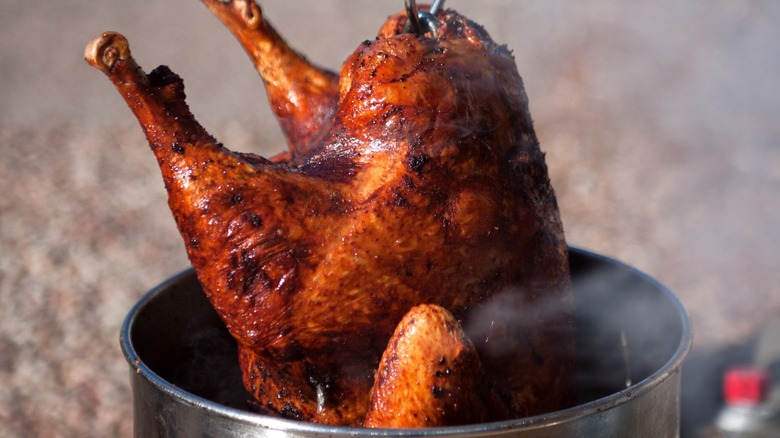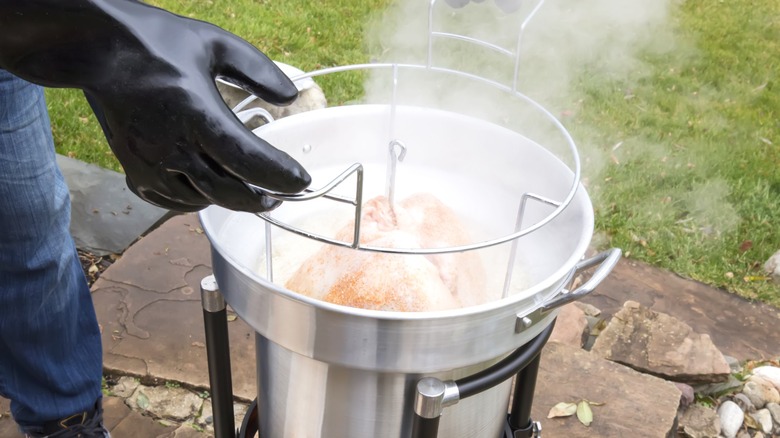The Dangerous Reason You Should Never Deep Fry Frozen Turkeys
We may receive a commission on purchases made from links.
Since deep-fried turkeys entered the mainstream, Thanksgiving dinner has never been the same. Not only is this a spectacular way to present your bird, but the crispy exterior and moist meat is a godsend for anyone who tends to dry out their turkey when oven cooking it. It's also a much quicker option than traditional roasting. The downside is that it can be incredibly dangerous, with deep fryer fires accounting for an average of five deaths per year, according to the National Fire Protection Association (via FDNY Smart).
While any kind of deep frying comes with some risks, the main issue here is home cooks attempting to cook a turkey that's still frozen. That ice equals moisture, and if you've ever flicked water on a hot pan of oil, you can see why this is a bad idea. Without getting too scientific, the extremely high temperature of the oil turns the ice instantly to steam. As the steam rapidly expands, it will literally blow the oil out of the pot, where it can be ignited by the heat source. It only takes a small amount of oil to catch fire before the whole lot goes up in flames.
How to safely deep fry a turkey
The key to avoiding a fireball is to make sure your turkey is completely thawed before you fry it, and this might take longer than you think. The USDA recommends a full day of thawing for every 4 to 5 pounds of turkey. You'll also need to allow for brining time, and given that we're trying to get rid of water, a dry brine is the best option for your turkey. The second thing is to make sure you have the right amount of oil. Even with a well-dried turkey, placing it into an overly full pot of oil is going to result in the same oil fire.
First, fill the pot with water to the fill line, then submerge your wrapped turkey so an inch of water covers it. As you do this the extra water is going to be pushed out. Remove the turkey and mark how far the water comes up — this is how much oil you'll need. It should go without saying that frying should be done outside in a well-ventilated area. You'll also need a frying thermometer with an alarm (like this one from CDN), heat-resistant gloves, a poultry lifter, and, ideally, a fire extinguisher. After all, the biggest mistake you can make when deep-frying a turkey is not investing in the proper equipment.
You should also be up to date on how to safely extinguish a grease fire. Finally, reconsider if you really need to deep fry the turkey in one piece. While it might not have the same "wow" factor, cutting your turkey into pieces before deep frying as Andrew Zimmern recommends is not only safer, but reduces cooking time and the amount of oil needed. It also allows you to create a crispy exterior on each serving, and adjust the cooking time for the legs, breast, and wings.

